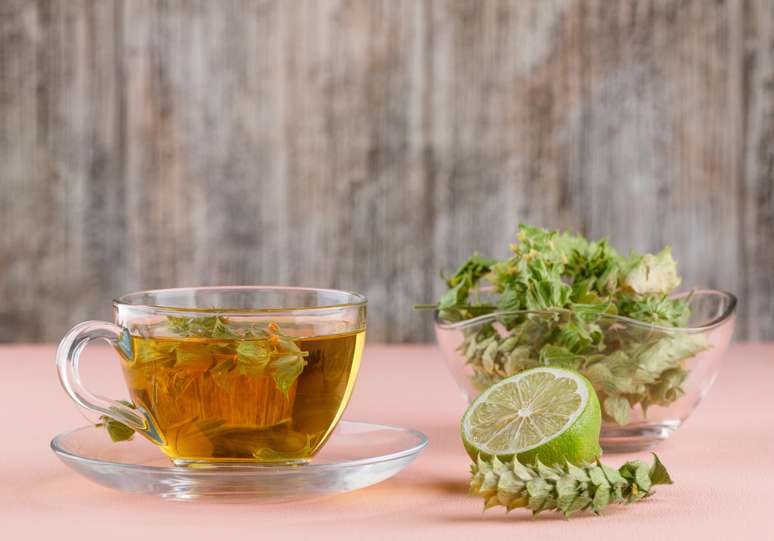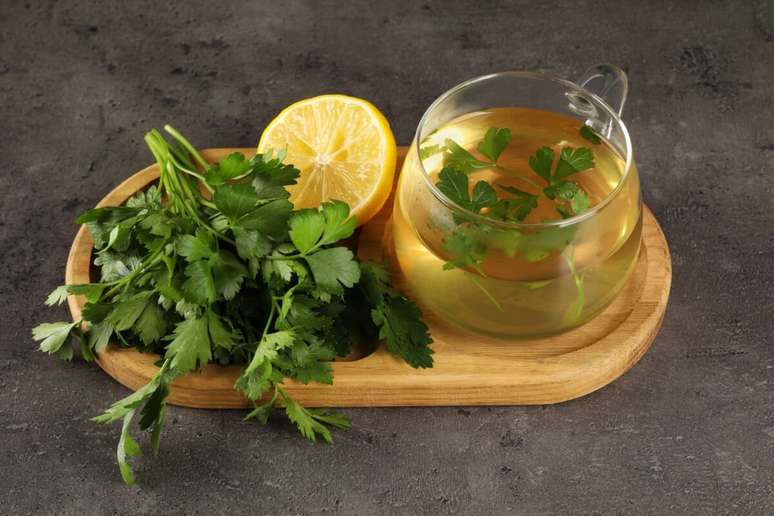Know the natural options to relieve cough and strengthen immunity
Respiratory infections become more frequent and persistent cough is one of the most uncomfortable symptoms. For those who are tired of resorting to medicines to relieve this discomfort, herbal teas can be a natural and effective alternative.
Prepared with known ingredients for their relaxing, anti -inflammatory and expectorant properties, these tea help to soften the irritated throat, reduce inflammation on the airways and even strengthen the immune system. Take a look at five recipes of Health -Shot Health magazine that can provide immediate relief for cough.
1. Chamomile tea and mint
The combination of chamomile, with its relaxing properties and mint, known for its decongestant action, is ideal for calming the throat and relieving dry cough.
Ingredients:
- 1 cup of water
- 1 sachet of chamomile tea or 1 teaspoon of dry flowers
- 1/2 teaspoon of dry mint leaves
- 1 teaspoon of honey
- 1 slice of ginger (optional)
Preparation:
- Boil the water and add the chamomile and mint.
- Leave the infusion for 5-7 minutes.
- Filter and add honey and ginger if you wish.
- Drink hot for the best results.
2. Thyme tea and honey
The thyme has antimicrobial and expectorant properties, helping to eliminate mucus and relieve productive cough.
Ingredients:
- 1 cup of water
- 1 teaspoon of dry thyme
- 1 teaspoon of honey
- 1 slice of lemon (optional)
Preparation:
- Boil the water and add the thyme.
- Cover and leave to rest for 10 minutes.
- Filter and add honey and lemon.
- Consume hot.
3.
Both turmeric and ginger have anti -inflammatory properties that help reduce the irritation of the throat and relieve cough.
Ingredients:
- 1 cup of water
- 1 small piece of fresh ginger (sliced or grated)
- 1/2 teaspoon of turmeric powder or a small piece of fresh turmeric
- 1 teaspoon of honey (optional)
- 1 teaspoon of lemon juice (optional)
Preparation:
- Boil the water and add the ginger and turmeric.
- Cook over low heat for 5-7 minutes.
- Filter and add honey and lemon if desired.
- Drink hot.
4. Ginger tea, honey and lemon
This infusion is a classic for the relief of respiratory symptoms, which combines ginger expectorant properties with vitamin in lemon C.
Ingredients:
- 1 small piece of fresh, sliced ginger
- 1 cup of water
- 1 teaspoon of honey
- 1/2 lemon juice
Preparation:
- Boil the water and add the ginger.
- Cook over low heat for 5-7 minutes.
- Remove from the heat and leave to rest for a few minutes.
- Filter, add honey and lemon and drink hot.
5. Mint tea
Mint is known for its decongestant and refreshing properties, helping to reduce the irritation of the throat.
Ingredients:
- 1 cup of water
- 1 teaspoon of dry mint leaves or 5-6 fresh leaves
- 1 teaspoon of honey
- 1 slice of lemon
Preparation:
- Boil the water.
- If you use fresh leaves, mix slightly to release essential oils.
- Add the leaves in hot water and coverage.
- Leave the infusion for 7-10 minutes.
- Filter, add honey and lemon and drink hot.
Cure when consuming cough cough
Although herbal tea are a natural option, some cure are required:
- Make sure you have no allergy to any of the ingredients.
- Mint can aggravate acid reflux.
- Ginger is not recommended for those with coagulation or anticoagulant disorders.
- Children under the age of one year should not consume honey.
- Excessive consumption of tea can cause gastrointestinal discomfort or headache.
- Pregnant women and breastfeeding women should consult a doctor before consuming certain tea.
If the cough persists for more than a week, that is, accompanied by fever, lack of breath or chest pain, ask for medical advice. Tea are allied in the relief of symptoms, but do not replace the treatment indicated by healthcare professionals.
Source: Terra
Ben Stock is a lifestyle journalist and author at Gossipify. He writes about topics such as health, wellness, travel, food and home decor. He provides practical advice and inspiration to improve well-being, keeps readers up to date with latest lifestyle news and trends, known for his engaging writing style, in-depth analysis and unique perspectives.








